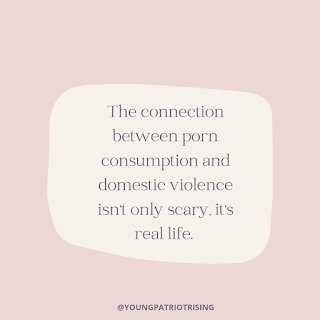"Have I not commanded you? Be strong and courageous. Do not be afraid; do not be discouraged, for the Lord your God will be with you wherever you go." Joshua 1:9
Search This Blog
Eight Impactful Reasons To Give Up Pornography
When Women are the Traffickers
The Scary Connection Between Domestic Violence and Pornography
Three Myths about Pornography
The Connection Between Human Trafficking and PTSD
Let's start out with a definition of what PTSD is. According to the Mayo Clinic, post-traumatic stress disorder (better known as PTSD) is a mental health condition "that is triggered by a terrifying event — either experiencing it or witnessing it." These "events" can include actual or life-threatening violence, serious injury, or sexual abuse or exploitation. In many cases, when we hear the word "PTSD," we think of veterans, as they witnessed events none of us can fathom. However, human trafficking victims do get overlooked when discussing PTSD.
What are the symptoms of PTSD? As stated by the Anxiety & Depression Association of America, there are three main types of symptoms:
- Re-experiencing the trauma through intrusive distressing recollections of the event, flashbacks, and nightmares.
- Emotional numbness and avoidance of places, people, and activities that are reminders of the trauma.
- Increased arousal such as difficulty sleeping and concentrating, feeling jumpy, and being easily irritated and angered.
Domestic Abuse Against Men Cannot be Ignored
The Tragic Truth of Sextortion
- 1 in 4 victims of sextortion were under the age of 13 (found in a study conducted by THORN and Crimes Against Children Research Center at UNH).
- The same study found that over 50% of sextortion cases took place on social media.
- During the pandemic, men were more likely to be victims of sextortion than women.
- The porn industry fosters, fuels, and perpetuates sextortion.
- Sextortion scams became popular during COVID. Evil, manipulative individuals tricked others into believing that they had explicit photos/videos of them and would use it against them.
- Know the red flags. This is probably one of the best ways to prevent extortion. Knowledge really is power. Some of the signs of a potential extorter for sex include the following: flattery, sending gifts, offer for modeling gig, asking for personal information, isolation, secretive conversations, requests for sexual photos, threats. How many times have you been messaged by a random account asking for you to be their sugar baby? Prime example!
- Stay calm. Do not blame yourself, your child, or anyone except the abuser. The only person to blame is the extorter. He or she knew what they were doing to you. Don't shift blame. Do not get angry. Be understanding of the situation, because it's very delicate. If this is your child, and the photos are being shared at the school (which could lead to bullying), your child's mental state is in shambles. Getting angry could hurt them more.
- Record everything for evidence. Take screenshots, document messages and timestamps, save their username. Anything that can count as evidence to get this person will be useful.
- Get counseling. Don't say "I'm fine." Don't believe your child or your friend if they claim to be okay. It won't hurt talking to a psychiatrist or counselor over what happened.





